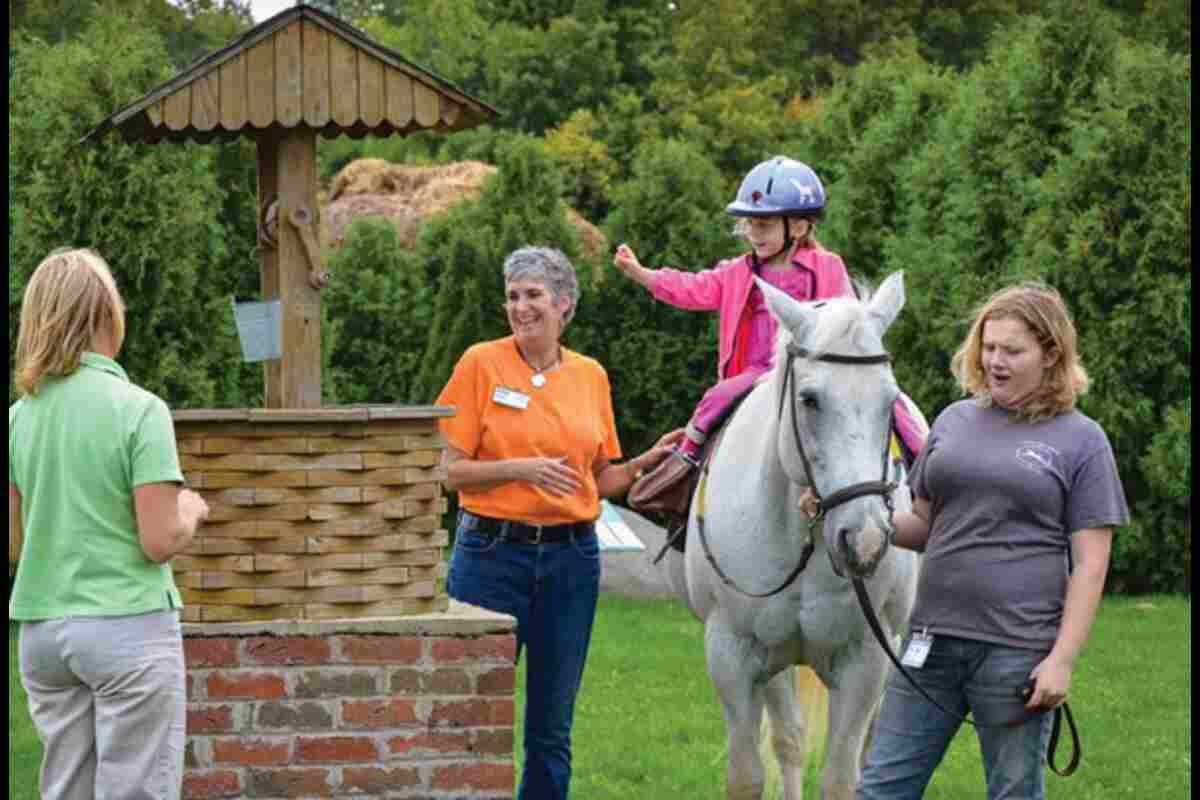Hippotherapy – Utilizing Animals For Therapy

Hippotherapy – It has long been recognized that contact with animals can have a calming and therapeutic effect on people with disabilities or who are ill. Several hospitals have schemes where cats or dogs are brought onto the wards to comfort and provide company for patients, and swimming with dolphins is also used extensively with children.
One of the longest-established and most effective forms of animal therapy is hippotherapy or the use of horses for therapy.
Types of Therapy
There are many different ways in which horses can be used therapeutically. In the purest sense of the word, hippotherapy is using the movement and motion of sitting on a horse to produce movements in the patient’s body. Many other forms of horse therapy also exist, and schemes such as Riding for the Disabled have become well-known for their successes.
Patients and Conditions
A wide range of patients and conditions can be helped through contact with horses. Some of the most commonly treated conditions are cerebral palsy, multiple sclerosis, patients with spinal cord injuries, and arthritis. For these sorts of patients, being on a horse can help to develop their sense of balance, and posture and improve overall core strength in the body.
Adults and children with mental health problems or behavioral issues can benefit from close contact with a horse, which both improves their quality of life and gives them a sense of accomplishment and achievement. Coordination, fine motor skills, and concentration can also be greatly improved by riding a horse. As well as riding, many of the charity-run groups also offer other horse-based activities such as carriage driving.
Suitability of Horses
Not every horse is cut out to be used in hippotherapy. Horses have to be passive and calm. A highly strung horse that is likely to be skittish or take fright in unfamiliar situations is not appropriate.
Many horses and ponies of different breeds and sizes are used in hippotherapy, given that the people taking part may range from small children to fully grown adults. Horses should also have a good relationship with the staff members at the center, to help them to cope with several different riders with differing requirements through the course of their working day.
Care Requirements
All owners who are interested in their horses take great care of them, and hippotherapy horses are no different. In fact, they are cared for even better than normal horses due to their valuable skills as therapy animals. All good riding for the disabled and therapy centers will have their animals regularly checked by a vet, and all will have a first aid kit containing items such as equine wound care supplies in the event of an accident.
Accidents are rare but do happen and require prompt attention to both horse and rider. A stable with a kit containing all the basics such as bandages, wound wash, equine wound care supplies, and sterile saline shows that it is as concerned about the horses as it is about the humans who are riding.
Also Read: Alcoholism Treatment: Top Benefits of an Alternative Alcohol Treatment